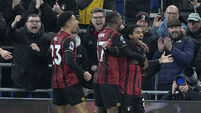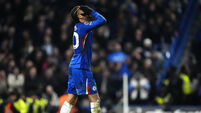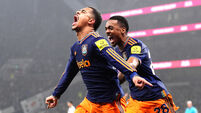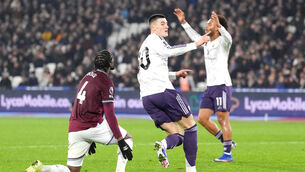Flickering screen lit fire that can never be put out
IT WAS the Da, the Ma and three older sisters versus the European Cup — and there could only ever be one winner. If I was something of a late-developer as a football fan, only falling hard for the beautiful game after eight years on the planet during which Batman and The Virginian had vied to be the main objects of my hero worship, then I’m afraid I have to blame the family.
Not enough to warrant years of therapy, you understand. I mean, I loved them all dearly, but the Da was strictly a GAA and horse-racing man, the Ma only expressed an interest when Cork were doing the business and, apart from the odd bit of camogie at school, the girls were not exactly what you would call sporting fanatics.














